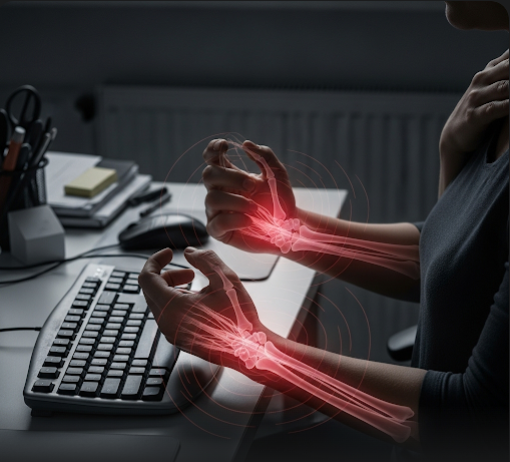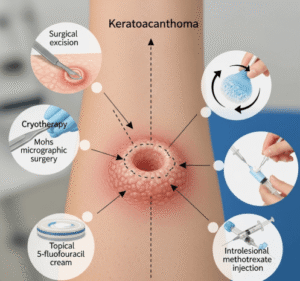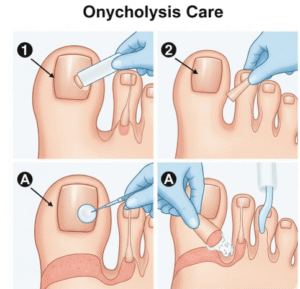Overview
Repetitive Strain Injury (RSI) refers to a group of painful conditions caused by repetitive motions, overuse, or sustained awkward positions, commonly affecting muscles, tendons, and nerves. It often involves the hands, wrists, elbows, shoulders, or neck. Korea offers advanced diagnostic techniques, ergonomic assessments, and multidisciplinary treatments for effective management and rehabilitation of RSI.
What is Repetitive Strain Injury?
RSI encompasses various musculoskeletal disorders caused by repetitive movements or sustained postures, leading to inflammation, pain, and functional impairment. Common examples include carpal tunnel syndrome, tennis elbow, and tendonitis.
Symptoms
- Gradual onset of pain and tenderness in affected areas
- Stiffness and decreased range of motion
- Tingling or numbness, especially in the hands or fingers
- Weakness or loss of grip strength
- Swelling or cramping in muscles
Causes
- Repetitive motions such as typing, assembly line work, or using tools
- Poor ergonomic setups at work or home
- Prolonged static postures
- Forceful or awkward movements
Risk Factors
- Occupations involving repetitive hand or arm movements
- Poor posture or workstation ergonomics
- Lack of regular breaks during repetitive tasks
- Previous injuries or musculoskeletal conditions
Complications
- Chronic pain and disability
- Decreased productivity and work absenteeism
- Development of secondary nerve compression syndromes
- Psychological stress due to chronic discomfort
Prevention
- Ergonomic workplace adjustments
- Frequent breaks and stretching exercises
- Use of supportive equipment like wrist braces
- Education on proper techniques and posture
Treatment Options in Korea
Diagnosis
- Clinical examination and patient history
- Electromyography (EMG) and nerve conduction studies for nerve involvement
- Ultrasound or MRI for soft tissue evaluation
Medical Treatments
- Anti-inflammatory medications and analgesics
- Physical therapy focusing on strengthening and flexibility
- Ergonomic counseling and workplace modifications
- Corticosteroid injections for persistent inflammation
Interventional & Surgical Treatments
- Minimally invasive surgeries for nerve decompression (e.g., carpal tunnel release) when conservative treatments fail
- Tendon repair or release procedures
Advanced Therapies
- Use of shockwave therapy, laser therapy, and ultrasound-guided injections
- Comprehensive rehabilitation programs integrating occupational therapy
Rehabilitation and Support
- Customized exercise and stretching programs
- Occupational therapy to modify daily activities
- Pain management and psychological support
- Regular follow-up to prevent recurrence
Top Hospitals or Clinics in Korea for Repetitive Strain Injury
- Seoul National University Hospital – Expert musculoskeletal and rehabilitation services
- Asan Medical Center – Advanced orthopedic and physical therapy care
- Samsung Medical Center – Specialized nerve and tendon disorder treatments
- Yonsei Severance Hospital – Comprehensive occupational health and rehabilitation
- Korea University Anam Hospital – Leading center for ergonomic assessment and therapy













